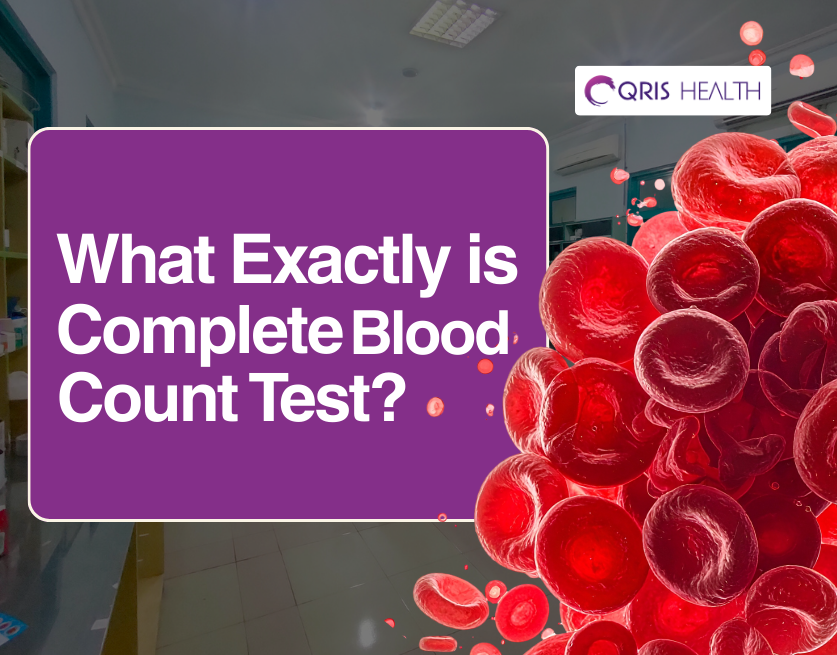The respiratory virus Human Metapneumovirus or HMPV has been present for decades but has come under the limelight recently after reports of an increase in cases in India. Almost ten cases had been documented when the concern had started about the virus's possible scope beyond the respiratory system, especially in terms of liver health.
While HMPV would give respiratory symptoms like other viruses including the one for COVID-19, this has to be differentiated in symptoms from its nuances of risk factors, and preventive measures.
What is HMPV?
HMPV is a respiratory virus that is most often characterized by the common cold, for example, cough, fever, and a runny nose. It can also lead to such serious illnesses as bronchitis or pneumonia, particularly in very young children and those with other health conditions.
HMPV is not a new virus, but recently, the research has begun to show that it is affecting organs other than just the lungs, including the liver. This brings into tension the question of the damage that this virus has been inflicting on health and if it would call for further proactive interventions.
Common Symptoms of HMPV
HMPV symptoms can vary in severity, depending on the individual's age, immune system, and underlying health conditions. Common symptoms include:
• Cold-like symptoms: Cough, runny nose, and congestion.
• Flu-like symptoms: Fever, chills, and body aches.
• Respiratory issues: Wheezing, shortness of breath, and difficulty breathing.
• Liver-related symptoms: Nausea, vomiting, loss of appetite, and abdominal pain.
In severe cases, particularly among vulnerable populations, HMPV can cause complications requiring hospitalization and oxygen support.
How HMPV Affects the Liver
Recent observations indicate that HMPV may not be limited to the respiratory tract. The virus has been linked to liver inflammation, characterized by elevated levels of liver enzymes such as SGOT and SGPT. These enzyme spikes suggest swelling and inflammation in the liver, potentially causing symptoms like:
• Loss of appetite.
• Abdominal pain or discomfort.
• Nausea and vomiting.
• Changes in liver function.
While the liver effects are not common in all HMPV cases, they highlight the virus's potential for multisystem involvement, especially in vulnerable individuals.
Who is at Risk?
While anyone can contract HMPV, certain groups are at higher risk of severe complications. These include:
1. Young children: Especially those under five years old or born prematurely, as they may be at risk of bronchiolitis or pneumonia.
2. Elderly individuals: Due to weakened immune systems.
3. People with chronic conditions: Such as asthma, chronic obstructive pulmonary disease (COPD), or other respiratory illnesses.
4. Immunocompromised individuals: Those with weakened immune systems are more vulnerable to prolonged recovery or severe symptoms.
Preventing HMPV: Dos and Don'ts
Prevention is the cornerstone of managing any respiratory virus. Here are some essential practices to minimize the risk of HMPV:
Dos
• Practice good hygiene: Wash your hands with soap and water for at least 20 seconds frequently.
• Maintain respiratory etiquette: Cover your mouth and nose when sneezing or coughing, preferably with a tissue or elbow.
• Stay hydrated and eat a balanced diet: This supports overall immunity.
• Disinfect surfaces: Regularly clean commonly touched items like doorknobs, toys, and countertops.
• Stay indoors if unwell: Isolating yourself can prevent the spread to others.
• Seek medical advice: Consult a healthcare provider if symptoms persist or worsen.
Don’ts
• Avoid crowded places: Especially during outbreaks.
• Do not share personal items: Such as utensils, towels, or water bottles.
• Avoid touching your face: Unwashed hands can transfer the virus to your eyes, nose, or mouth.
Conclusion
While HMPV is not a novel virus, the fact underlines the urgency of vigilance in prevention against respiratory consequences. Potential implications of liver interference and causes of complications among high-risk populations reinforce the importance of seeking medical attention whenever symptoms worsen.
Adhering to simple hygiene practices, keeping up to date, and seeking care promptly, you can substantially reduce the risk associated with HMPV. Collective responsibility is essential so let us strive to ensure well-being for our communities.
FAQs
1. Is HMPV as dangerous as COVID-19?
HMPV and COVID-19 share similar respiratory symptoms, but HMPV is not a novel virus and has been known for decades. While it can cause severe illness in vulnerable populations, it is generally less contagious and severe than COVID-19.
2. Can HMPV cause long-term health complications?
Most HMPV cases resolve without long-term effects. However, severe cases, particularly those affecting the liver or causing pneumonia, may require extended medical care.
3. How is HMPV treated?
There is no specific antiviral treatment for HMPV. Management focuses on relieving symptoms through hydration, fever reducers, and respiratory support in severe cases. Consult a healthcare professional for personalized advice.
4. Who should be most cautious about HMPV?
Young children, elderly individuals, and those with chronic respiratory conditions or weakened immune systems should take extra precautions to avoid infection.
5. Can HMPV affect other organs besides the lungs?
Yes, recent observations indicate that HMPV can also impact the liver, leading to symptoms like abdominal pain, nausea, and elevated liver enzymes.
6. What steps can families take to protect young children?
Encourage good hygiene practices, limit exposure to sick individuals, and keep your child's vaccinations up to date to reduce the risk of complications from respiratory viruses.
Read More
How to Treat HMPV Virus Infections
How to Prevent HMPV Virus Transmission
How to Identify HMPV Virus Symptoms
Understanding the Human Metapneumovirus (HMPV) and Its Symptoms
Who Is Most at Risk for HMPV Virus?
What Treatments Are Available for HMPV Virus?
What is HMPV Virus?

 Is It Dangerous.png)
 Health Risks of Inactive Lifestyle.jpg)
 Health effects of smoking.jpg)


